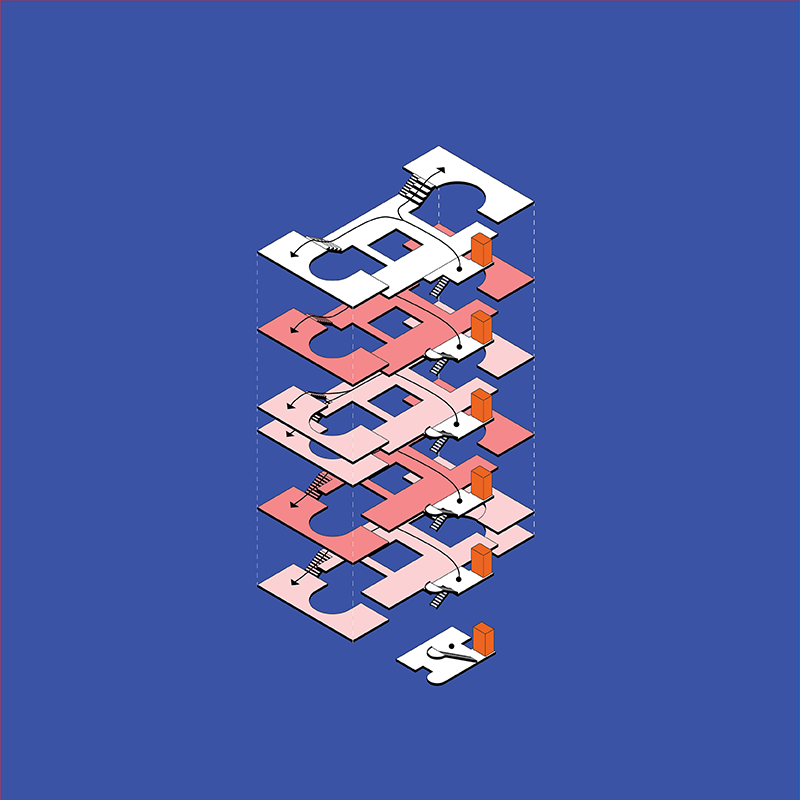

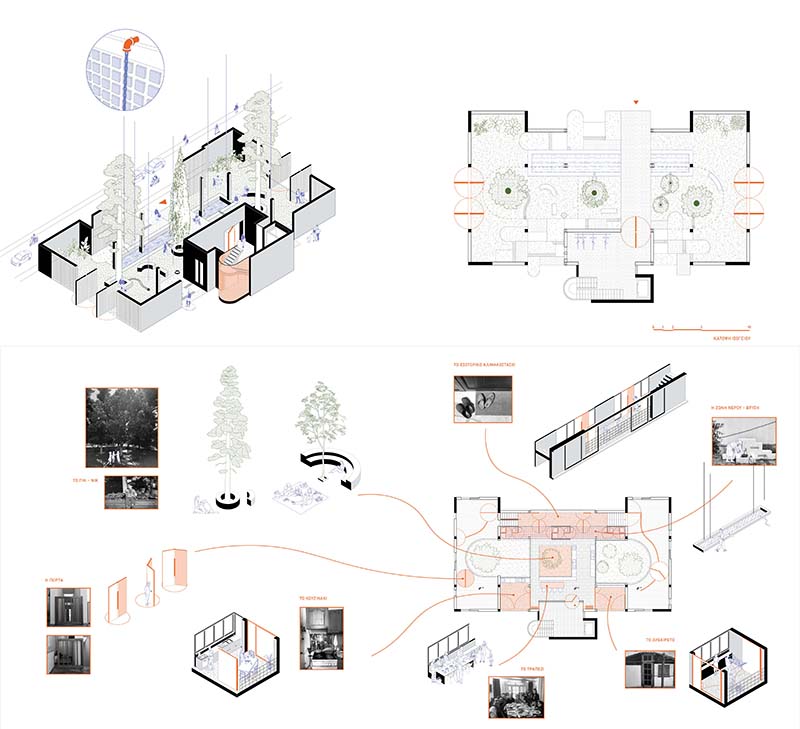

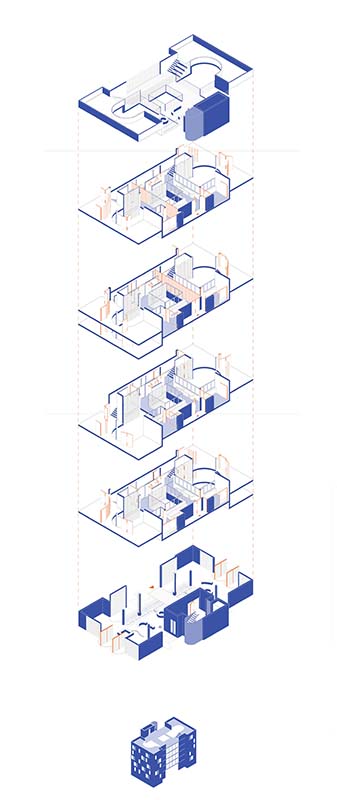



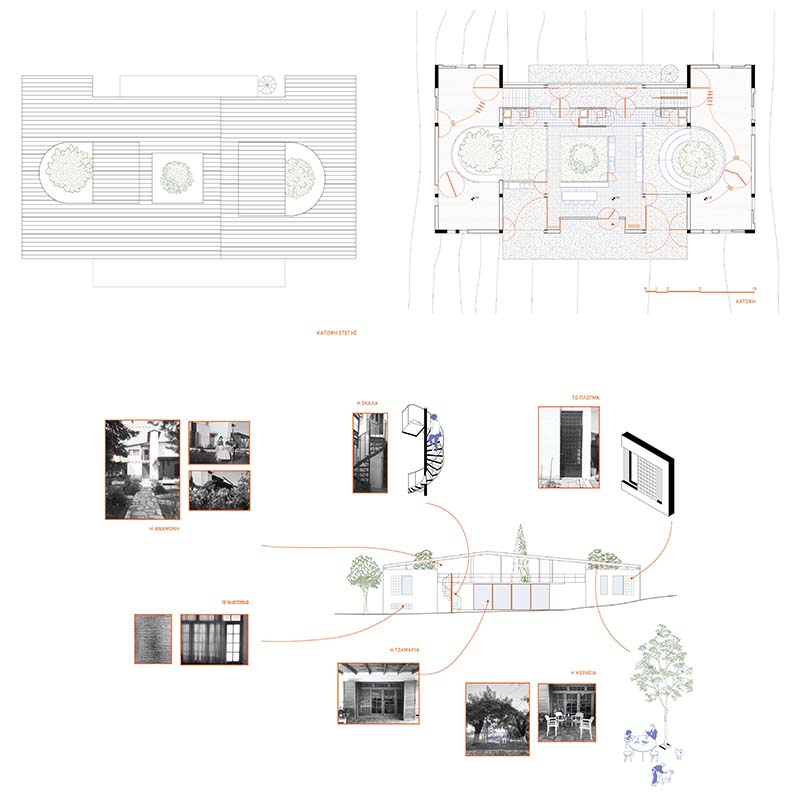

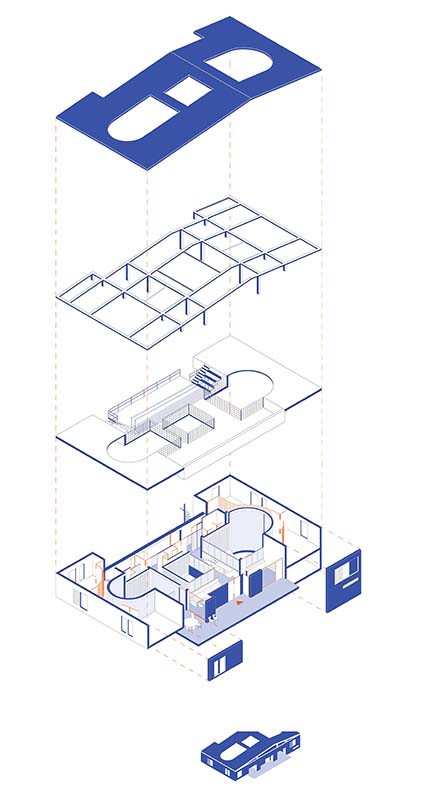

Dwelling, as one of the fundamental issues in architectural composition, constitutes a mirror of the way of life and cohabitation. With Konstantinidis characterizing dwelling as a vessel of life, it becomes clear that the concept refers not only to a habitable structure but includes people and their cohabitation as its content. This relationship of vessel and content could be characterized as bidirectional since the content follows the shape of the vessel, but conversely, the vessel has the ability to adapt to the structure of its content.
The project, engaging with this bidirectional relationship of structure and content, explores the way we inhabit and seeks to design dwelling as a translation of this way of cohabitation. Recognizing the need for flexibility in dwelling, it proposes a new model of cohabitation, incorporating the concept of dynamics in design. Through this approach, dwelling becomes a field of space production, allowing continuous adaptation to the needs of the inhabitants. Our proposal elaborates on the idea of a house within a house, expanding the possibilities of existing modes of habitation.
Thus, the 1 ⇔ 3 model is created, as a housing unit containing three smaller dwellings within it, indicative of the three generations commonly involved spatially within the framework of the ownership system. The wall detaches from its position as a sturdy boundary, and the mechanism of the door takes its place, opening up a new series of possibilities. The proposal of a house within a house is an approach that highlights the creativity of the concept of family and opens up new horizons in the way we live together.
This model is designed in two versions, that of the single-family house and the apartment building, and is placed in four different locations, two cities and two rural areas. Through this work, a redefined relationship with dwelling is proposed, reflecting the developments and needs of modern society.
Supervisor: Paniyiris Costis
Reference Number: 1045
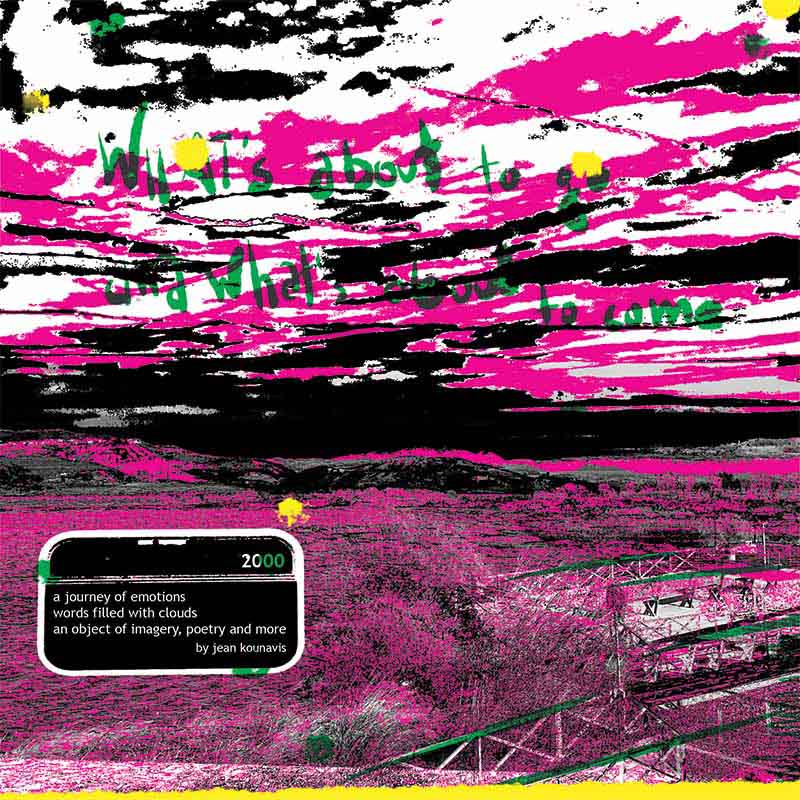

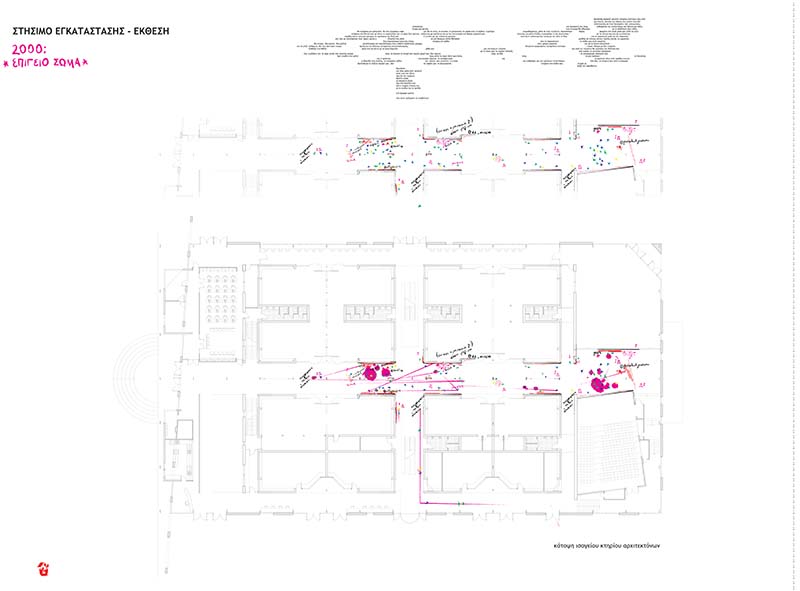

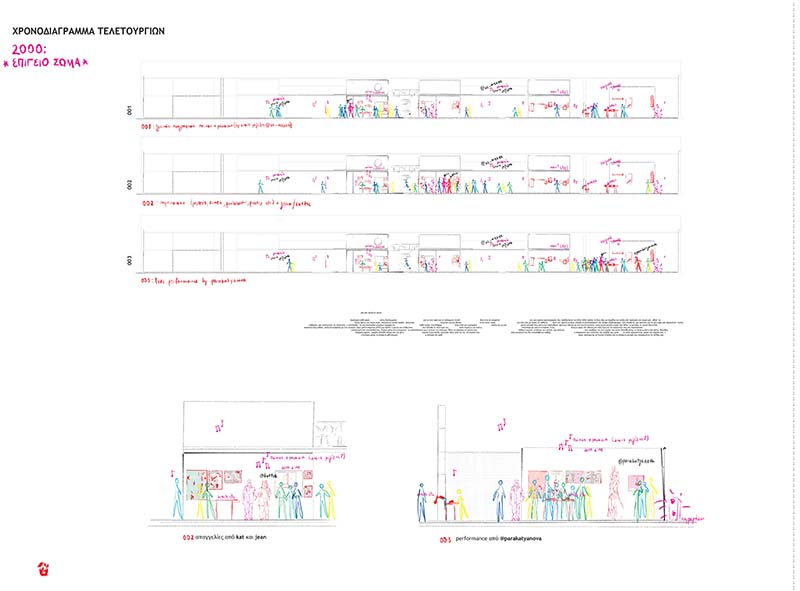

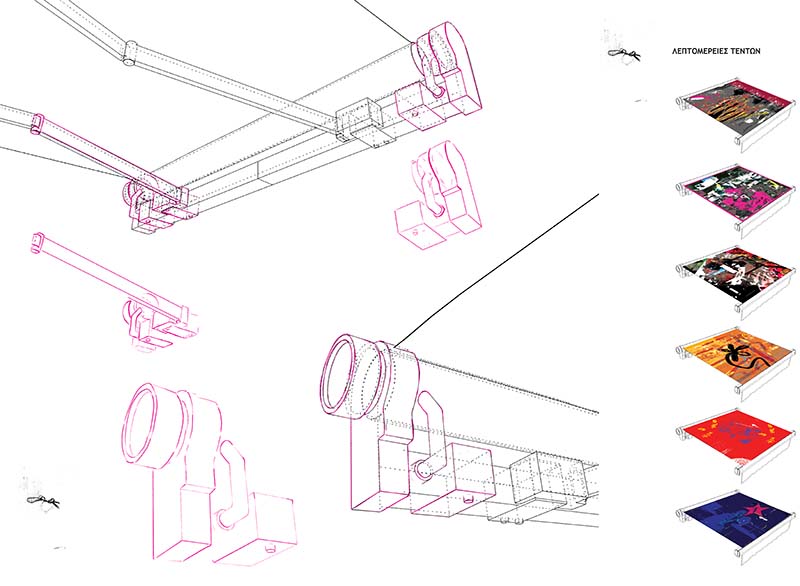

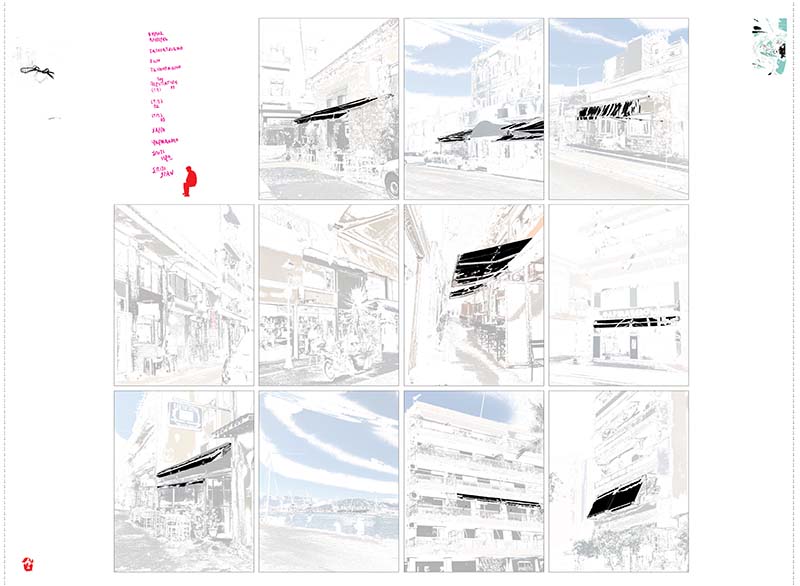

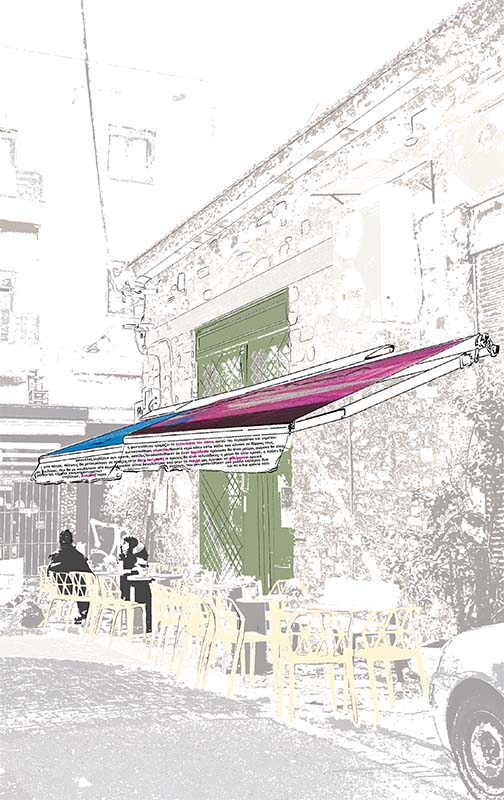

A journey into the world of magazines, print and digital, of self-expression, marrying poetry, memoir and prose with image, speaking to everyone and taking flesh through print editions, acoustic narratives, everyday objects, and installations in an urban spatial environment.
An object, an installation that you hear, see, read, touch, use, and which makes you travel with it. It is about an issue - or rather thirty-two issues - that contain poetry, narratives, images, processed faces, blurry memories, living bodies, it's about designing and organizing an exhibition of zines, it's about designing a reading path and displaying zines in the city of Volos.
Magazine set up, design, layouts, fonts, colors, shapes, sequence, harmony, material substance, touch.
An installation, a path in a city that gave birth to the need for this creation.
What is a "zine," a magazine, how do you understand the elements and peculiarities thatconstitute it, how do you set up your own and promote it in today's world of social media, the personal journey of the "2000", designing weekly issues, colorful worlds that are born, reborn, and invite you to a parallel universe. How an object designed for hands and concerning your relationship with sight and touch is spread out in space, takes on a more three-dimensional form, and spreads in the city, taking on another flesh, awakening your other senses. Designing a path of poetry and image in the city of Volos, talking through materials and spaces, using existing structures and possibilities but also creating new ones.
Conversations and thoughts that became actions, were captured on paper, on materials, in space, left and continue to leave their mark.
A game of space-time full of emotion, searching.
A two-way dialogue between "interior" and exterior space, where the feeling of belonging and safety prevails.
Supervisor: Giannisi Phoebe
Reference Number: 1048


This project presents two distinct architectural proposals for the same plot of land in Volos, Greece, both aimed at addressing the housing crisis primarily affecting younger generations. In recent years, many young people have delayed moving out of their family homes due to increasing living costs. These proposals offer a solution by promoting cooperative living to reduce expenses while fostering community engagement and self-management.
Both designs prioritize the integration of communal and private spaces to create a harmonious living environment. Shared areas such as balconies, gardens, terraces, and kitchens encourage interaction among tenants, challenging traditional boundaries between personal and communal spaces. These communal areas promote communication and collaboration, while individual apartments are fully equipped with private bedrooms, bathrooms, and living rooms to ensure personal autonomy and comfort.
Both proposals emphasize the inclusion of a communal garden, inspired by rural Greek living, where shared outdoor spaces are central to community life. In both designs, the ground floor and rooftop serve as communal areas. The first proposal arranges private apartments around these shared spaces, while the second proposal extends this concept by incorporating a shared kitchen for every two apartments. This feature encourages tenants to collaborate on daily tasks such as cooking and cleaning, fostering a stronger sense of collective responsibility and self-management, and making the second proposal more community-oriented.
Ultimately, both proposals aim to create a balanced living environment that addresses the personal needs of tenants while fostering a sense of belonging and cooperation. By providing an innovative approach to shared housing, the project contributes to the ongoing discourse on affordable and sustainable living solutions in urban Greece.
Supervisors: Phokaides Petros, Remy Nicolas
Reference Number: 1096
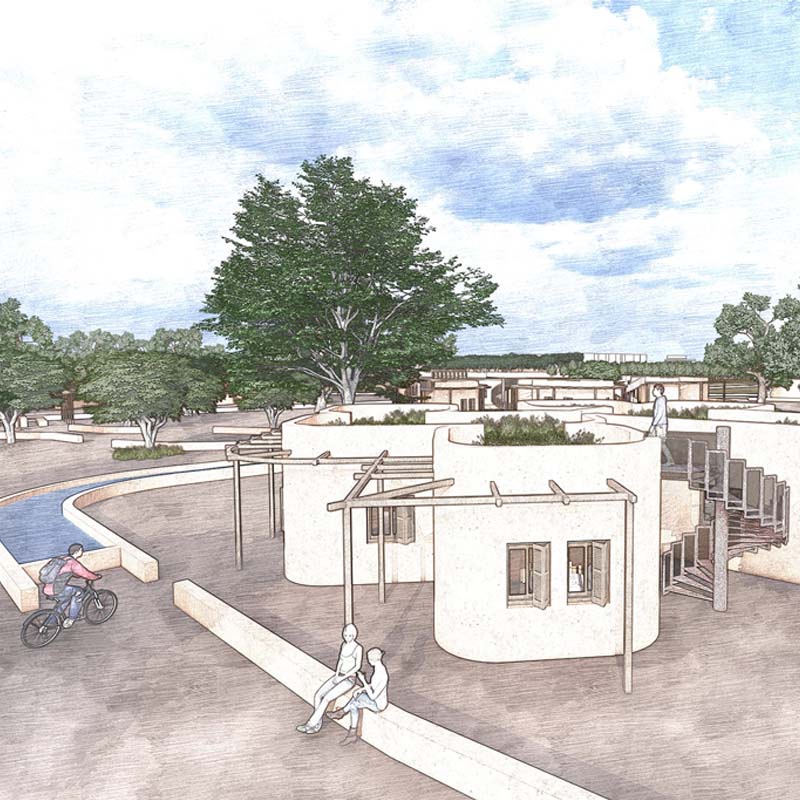

The science of Architecture in recent years has been devoted to the creation of not only buildings but also forms of taming this open world. In today's alien world, the vulnerability and fragility of human groups is a phenomenon that is increasing dramatically.
Architecture integrates the requests of vulnerable groups into the organization of space designed specifically for each type of group, reversing the denominator by creating a microcosm of intimacy that acts therapeutically. Members of our structure governed by vulnerability, as a byproduct of their recovery and drug addiction process.
Through our research we distinguished that the state primary and secondary health care institutions, as well as the five agencies, in Larissa, who care for rehab, limp in the area of reintegration, creating a discontinuity a distinct gap in their programs.
We attempt to fill this gap by organizing in our eco-community a way of life where collectivity, participation, education,
Self-management of food exist, while at the same time giving financial self-sufficiency and independence to its program, making it self-organizing. We wish its members to become caretakers of their own ecosystem in which they belong, dynamizing new registrations to welcome their future.
Its members are reborn through their relationship with the land, cultivating edible crops that thrive in that particular place. The polyculture on our plot of 153 acres is structured through the protocol of natural cultivation, which regenerates eroded soils. The principles of Permaculture, recycling and bioclimatic planning guide our intentions regarding the organization of our Eco-Village.
The direct dialogue of the structures with the eastern front, (with the most increased residential density), contributes to the osmosis of the community with the urban fabric that surrounds it.
Supervisor: Lykourioti Iris
Reference Number: 1072
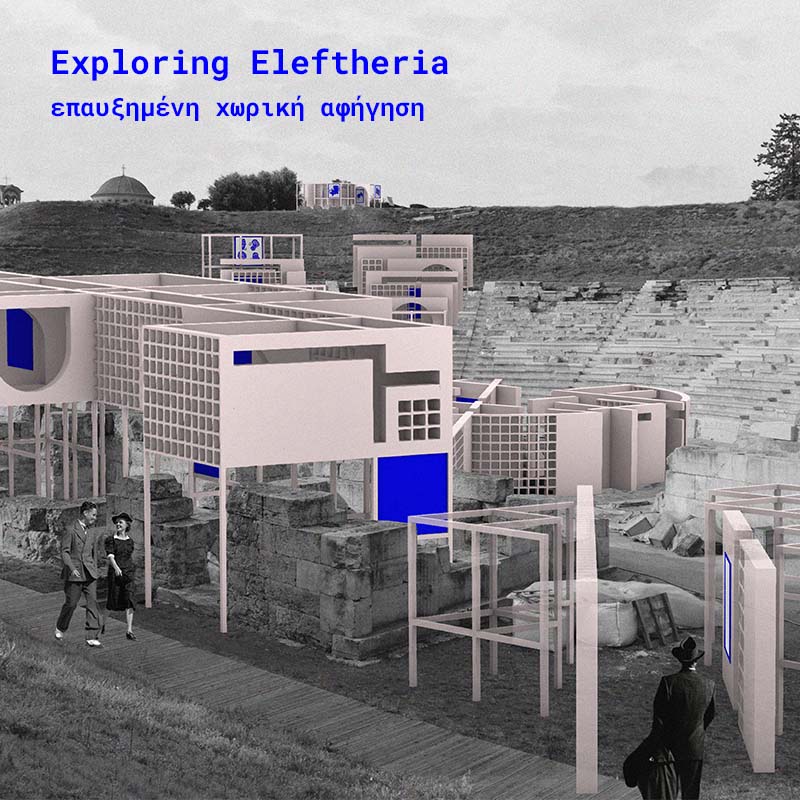

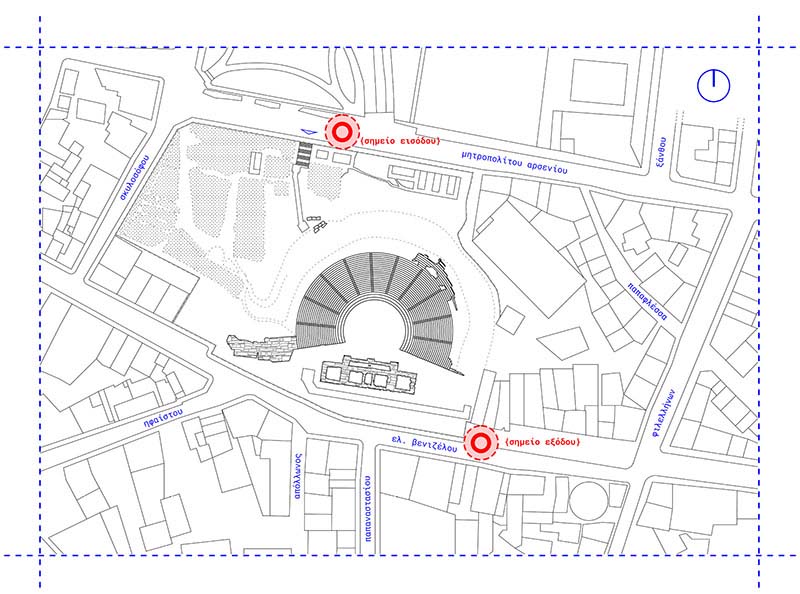

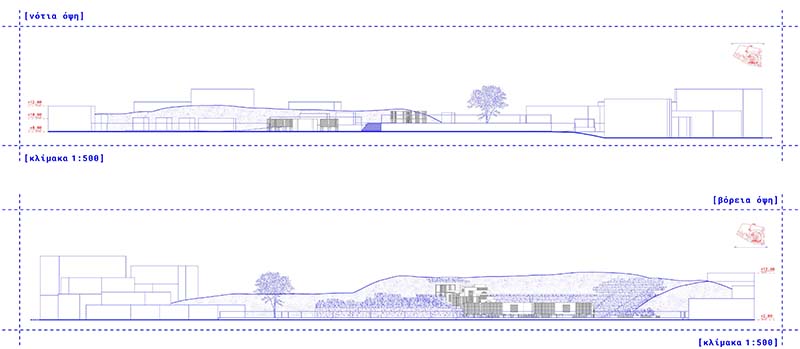

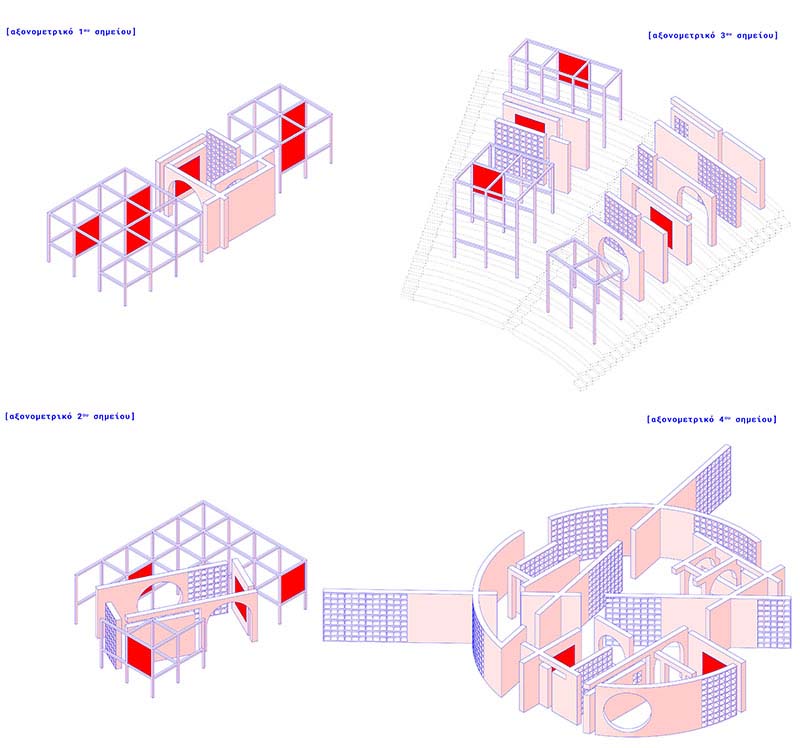

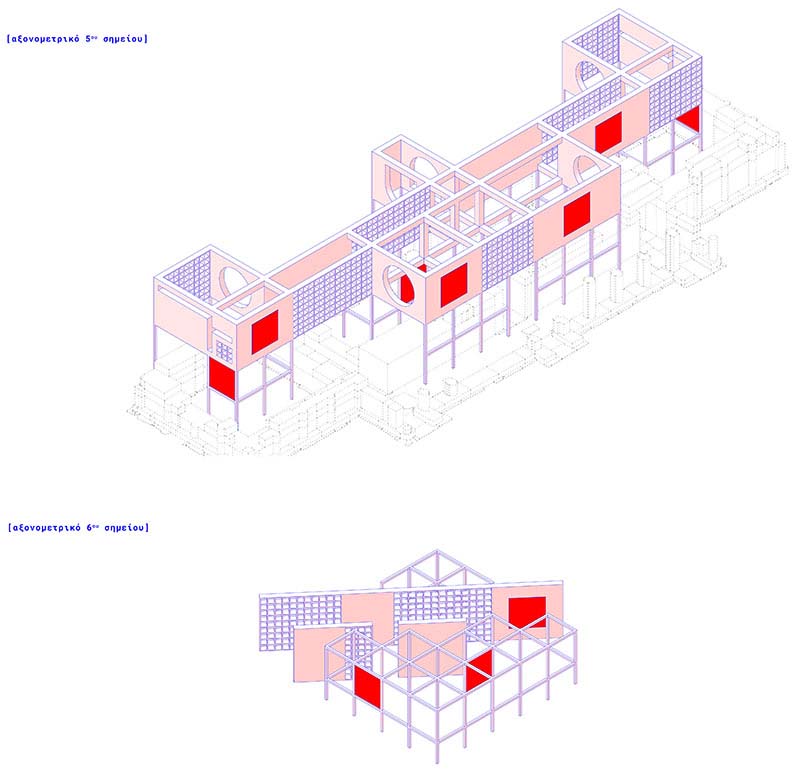

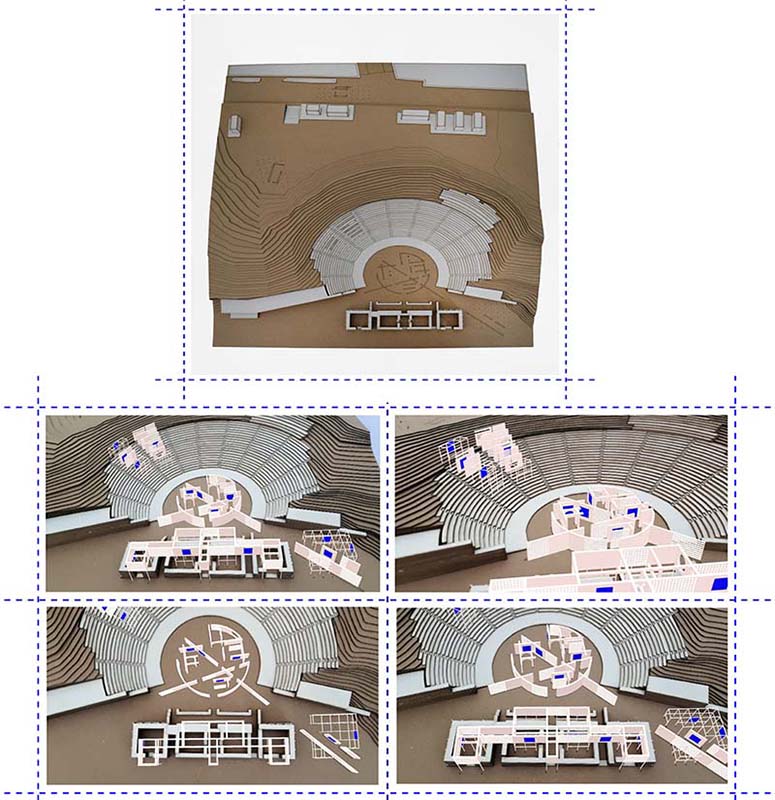

The present diploma thesis proposes the use of digital technologies for the development of a cultural heritage application, in the form of a game, which utilizes interactive storytelling as a tool, and aims to highlight the first ancient theater of Larissa. By studying the archaeological site and using techniques such as augmented reality, different perspectives of the theater are explored, and this cultural object is redefined. More specifically, an interactive environment is created through the design of an augmented reality application, which runs in-situ. It is a game which constitutes a linear suggestion of a tour of six points in the archaeological site of the theater. Narratively following the ancient dramatic scheme "hubris, ate, nemesis, tisis, catharsis", the ancient Greek theater as an institution is explored, as well as the first ancient theater of Larissa and the ancient festival of the Eleftheria, which took place at this location. The reference to Eleftheria, which is utilized narratively, revives and preserves the intangible cultural heritage of the theater. The specific object of cultural heritage was chosen because, as it has not yet been completely revealed, it continually engages the public of the city, demonstrating a remarkable range of cultural heritage with potential for development, while at the same time it is the most representative landmark of the city. Questions are also raised regarding the ability of the narrative element to serve as a useful tool for the projection of cultural heritage, but also questions regarding the approach to the design of the augmented space as an architectural problem. By combining the viewing of sites of cultural importance with the use of augmented reality, new ways of knowledge and new spatial extensions are created, and the cultural experience of the viewer-participant is redefined. Ultimately, the narrative rendered through the interaction and the very participation and willingness of the user, leads the theater to acquire a new experiential character, modern and changeable.
Supervisors: Papadopoulos Spiros, Bourdakis Vassilis
Reference Number: 1043
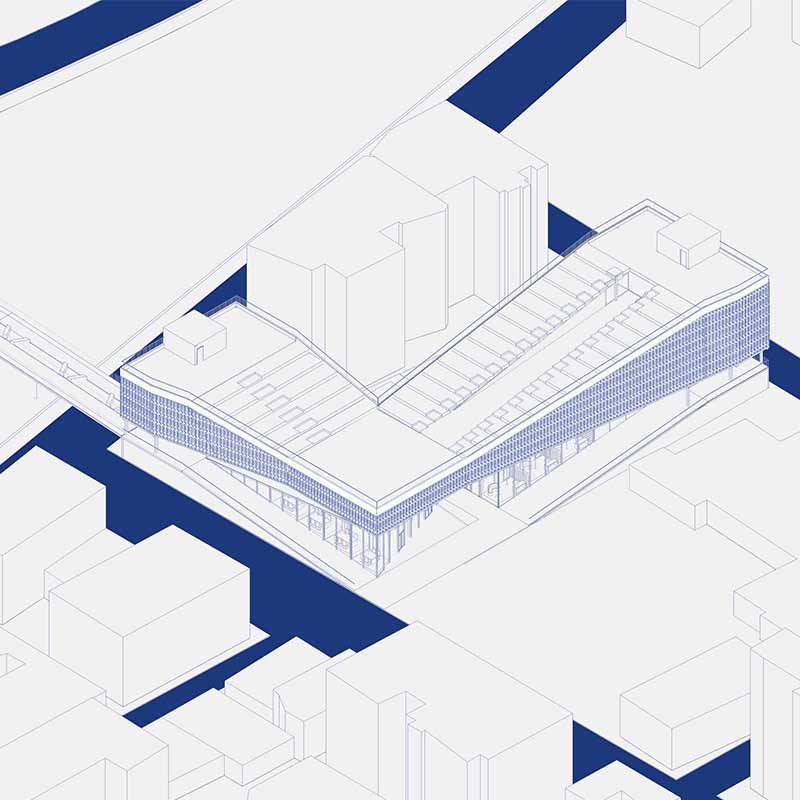

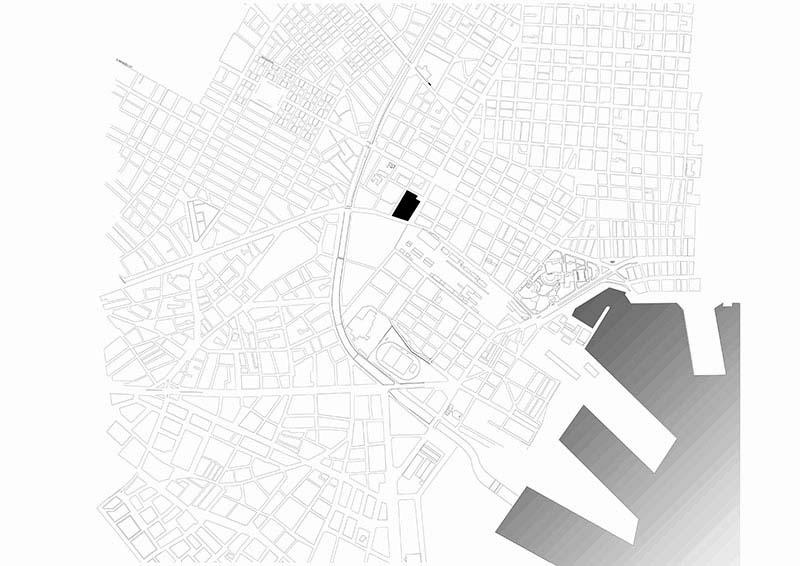

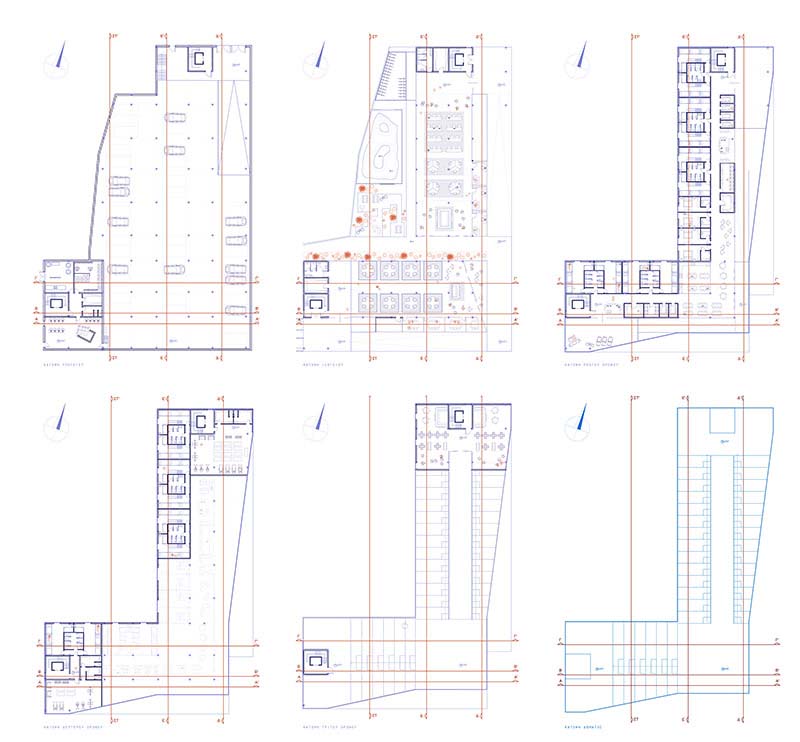

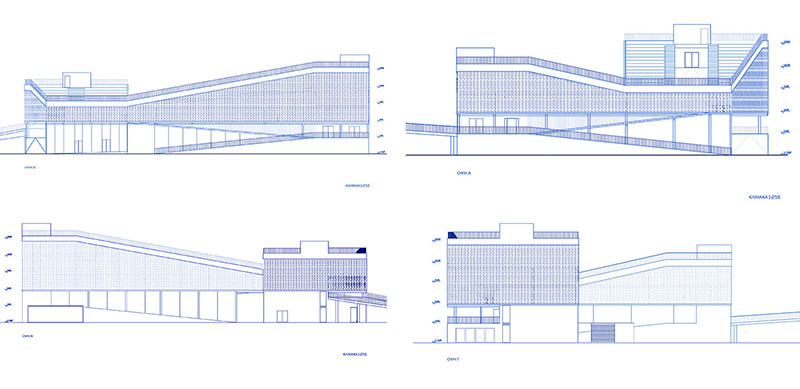

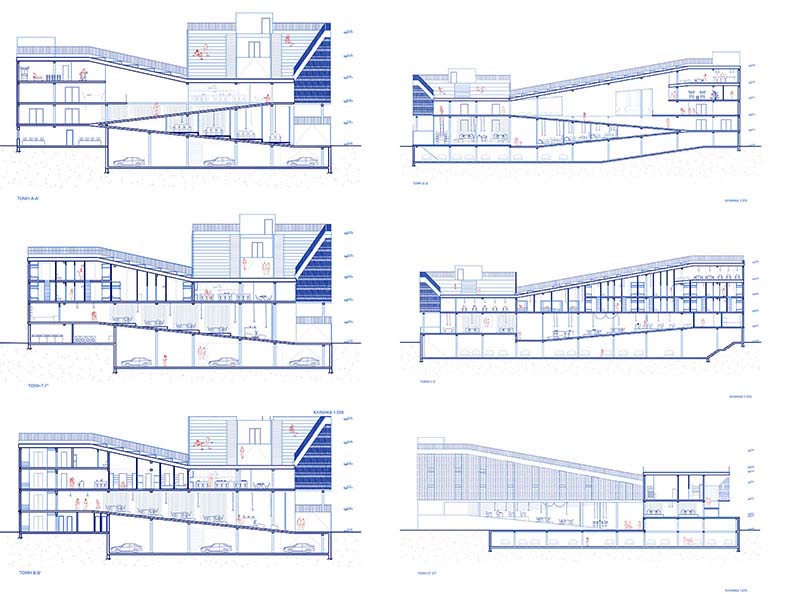

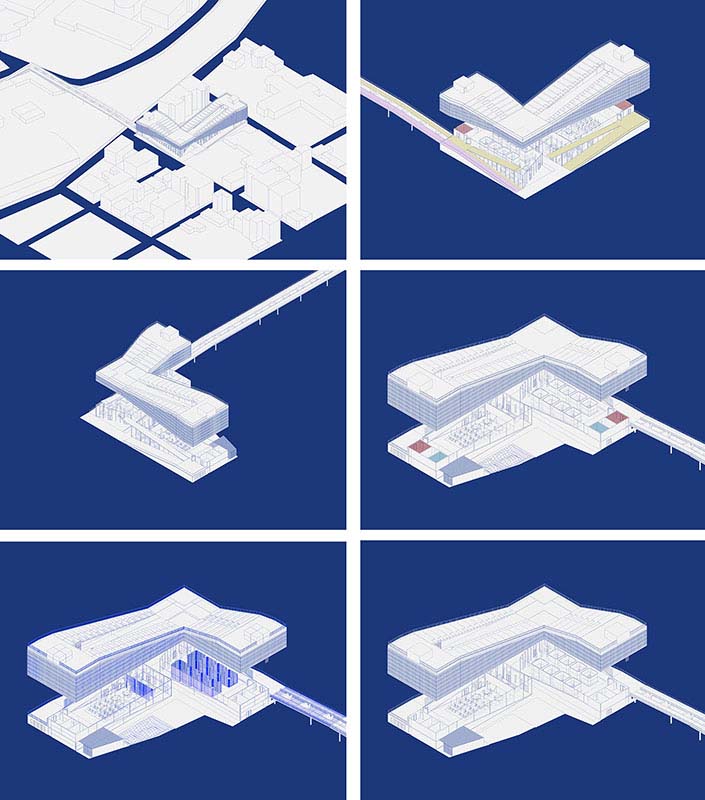

The contemporary era is marked by significant shifts in the nature of work. Remote working, born in the aftermath of the pandemic crisis, has brought about profound changes in how we choose to work and live.
The allure of flexible hours, decentralization, the emergence of new occupations, and the thrill of exploring the world have rendered the Digital Nomad lifestyle particularly appealing, especially to those in the early stages of their careers.
However, a critical question arises: What sets the digital nomad apart from the conventional tourist? Does our country aim to attract more short-term, carefree visitors, or do we seek individuals who can truly grasp the essence of Greece?
This thesis delves into the design of adaptable residential structures, fostering interactions between permanent residents and (semi-) nomads within the city of Volos. The objective is to cultivate mutually supportive communities with enduring connections, enhancing the quality of life for young citizens and solidifying Volos as both a cultural and economic hub.
Supervisors: Gavrilou Evelyn, Dimitrakopoulou Efthimia
Reference Number: 1039
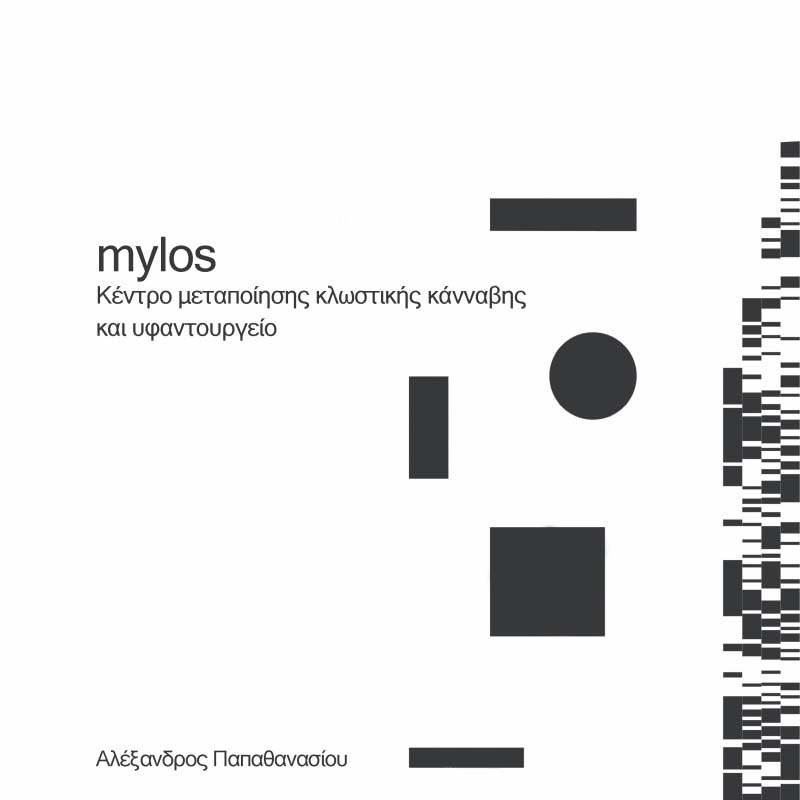

This thesis concerns the creation of a textile hemp processing center and textile factory in the city of Karditsa. The agricultural production process is an important factor for the economy and the work of many inhabitants of the Thessalian plain. Given the climate crisis that has affected the place in recent years, the need for sustainability in the cultivation and production of products with environmental benefits has arisen. The proposal wishes to examine the exploitation of textile hemp, a recently criminalized product, and attempts to redefine the way in which the artisanal scale fits into the urban environment. The center will include a plant for the processing of hemp, starting from the processing of the fibers and ending with the final product, the fabric. The goal of the work was the need to utilize sustainable crops that will reduce the ecological footprint and at the same time contribute to the development of the local economy.
Supervisor: Stylidis Iordanis
Reference Number: 1091
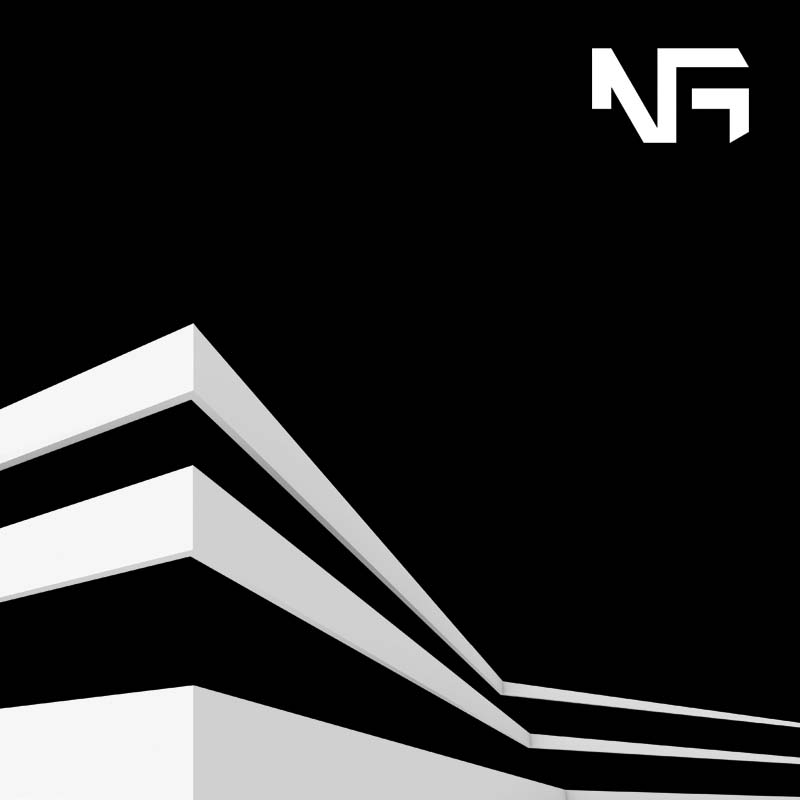

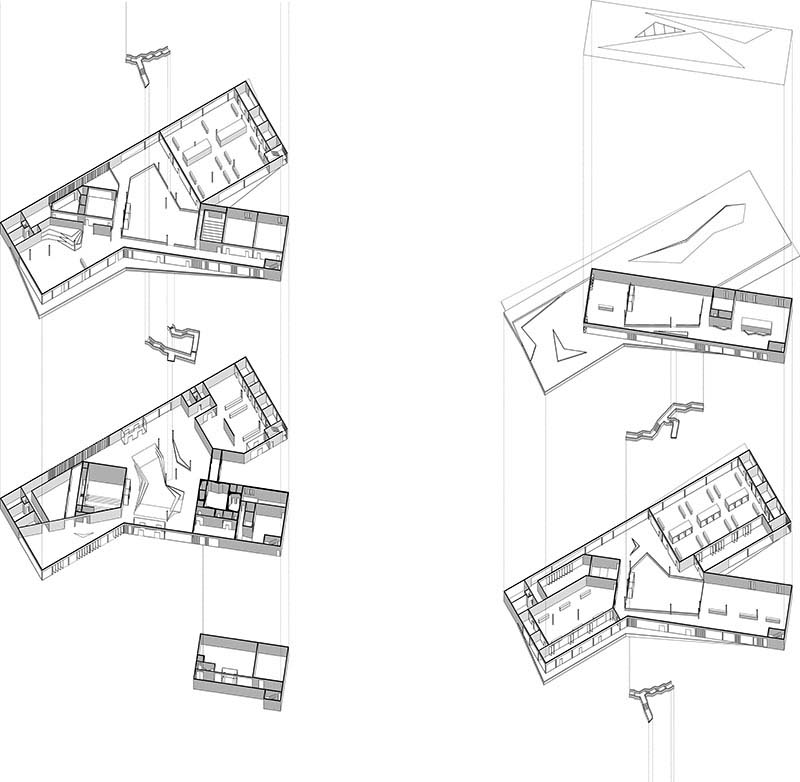

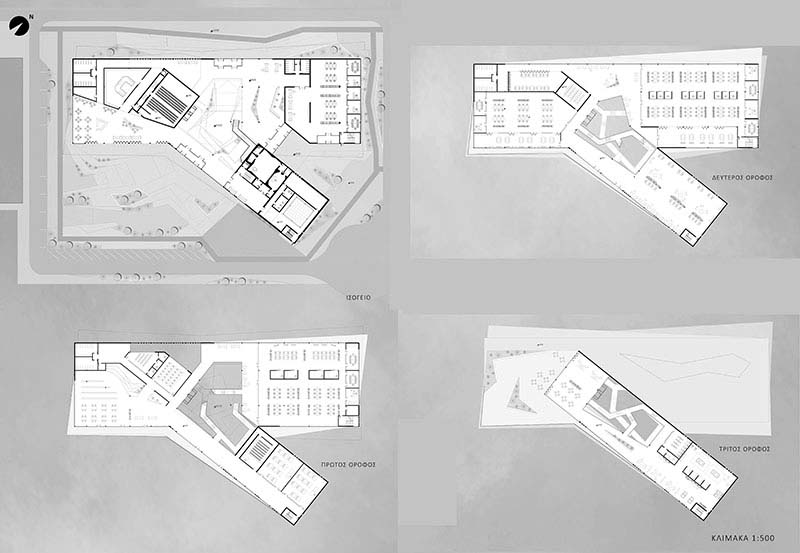

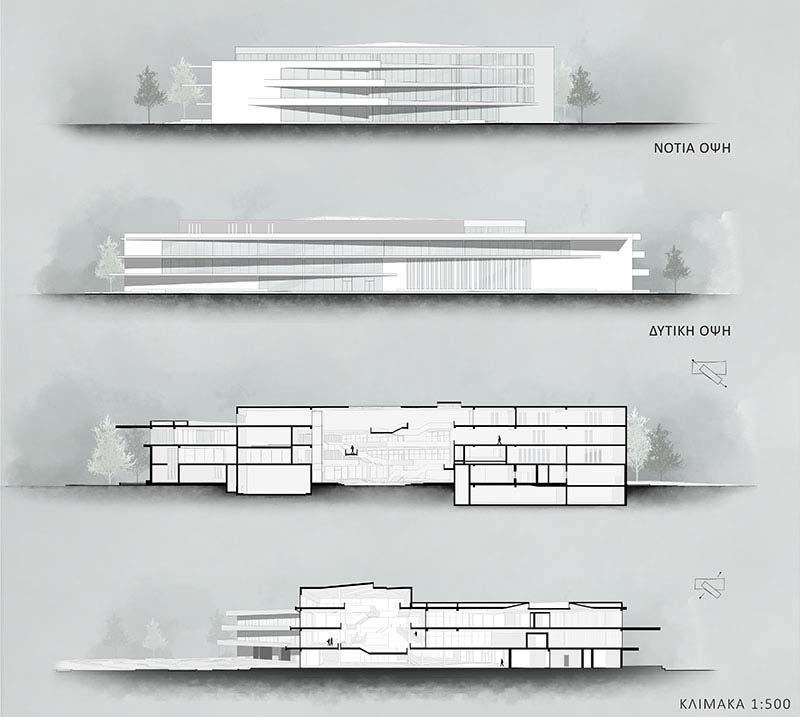

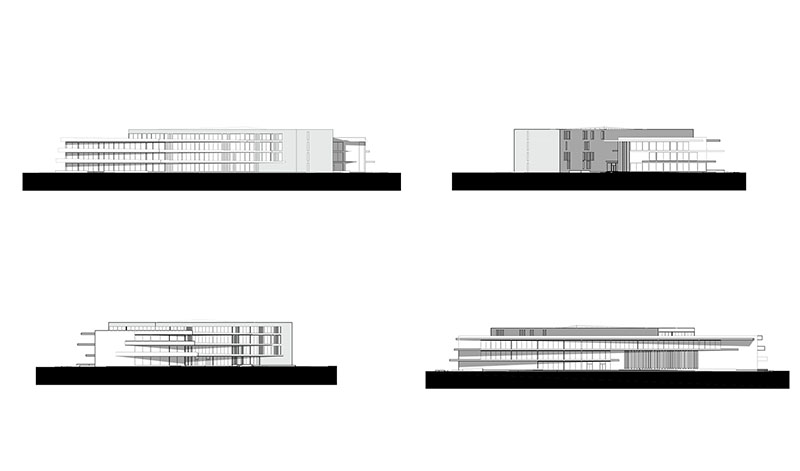

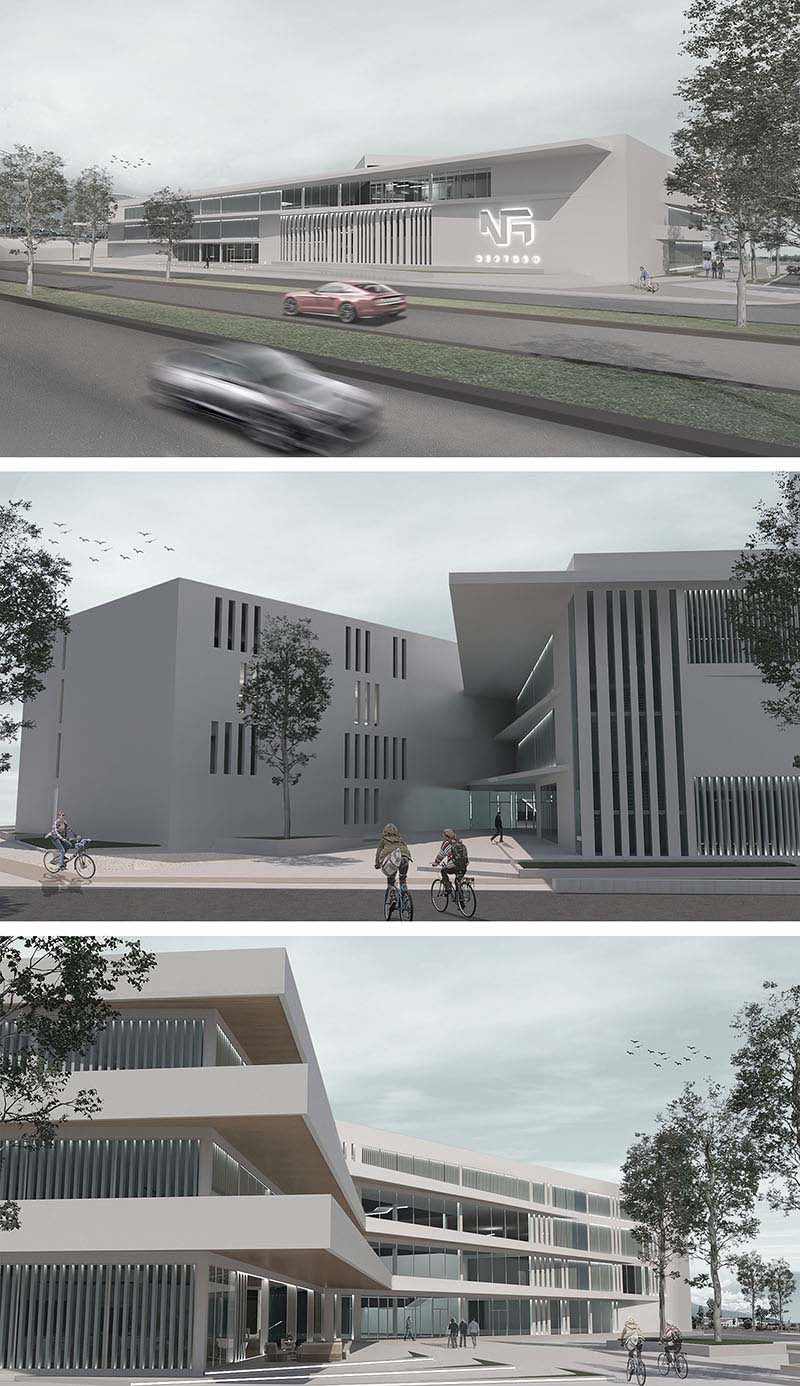

The video game industry is an emerging and competitive sector that is increasingly playing a significant role in the global market, as the demand for new, innovative video games grows. In Greece, the industry is still in its early stages, with a lack of innovative technological infrastructure and inadequate information.
This thesis focuses on the establishment of a Video Games Research and Development Center in the city of Volos, Magnesia. The center is an academic structure, aiming to involve students and professors, primarily from the city's universities. Its two main functions are initially the development of video games and research on innovative technologies related to new consoles, software, etc., and additionally, the organization of educational programs or seminars in the field.
The goal is for the building to operate through the University of Thessaly and, specifically, to serve as a "bridge" connecting students with the competitive market of the video game development industry. This is achieved by encouraging the formation of development teams consisting of students from different departments and by providing knowledge and information from trained professors, either from the University of Thessaly or from other areas.
By utilizing the educational background of universities, the developmental gap between Greece and other European countries is reduced, allowing the country to enter the competitive video game market. Moreover, through an interdisciplinary approach to the topic, the thesis aims to understand the functioning of the individual departments of a Video Games Development Company and therefore the production of the overall work through it.
In conclusion, the design of a building – a bridge for the youth is sought, which will create new job opportunities in Greece in an emerging and profitable profession, in video game development. Furthermore, through this, the creative and technological level will be developed, not only in the production of video games but also in the educational system, as through the cooperation of university bodies with the center, the exchange of corresponding knowledge and experiences becomes possible.
Supervisor: Symeonidou Ioanna
Reference Number: 1038

